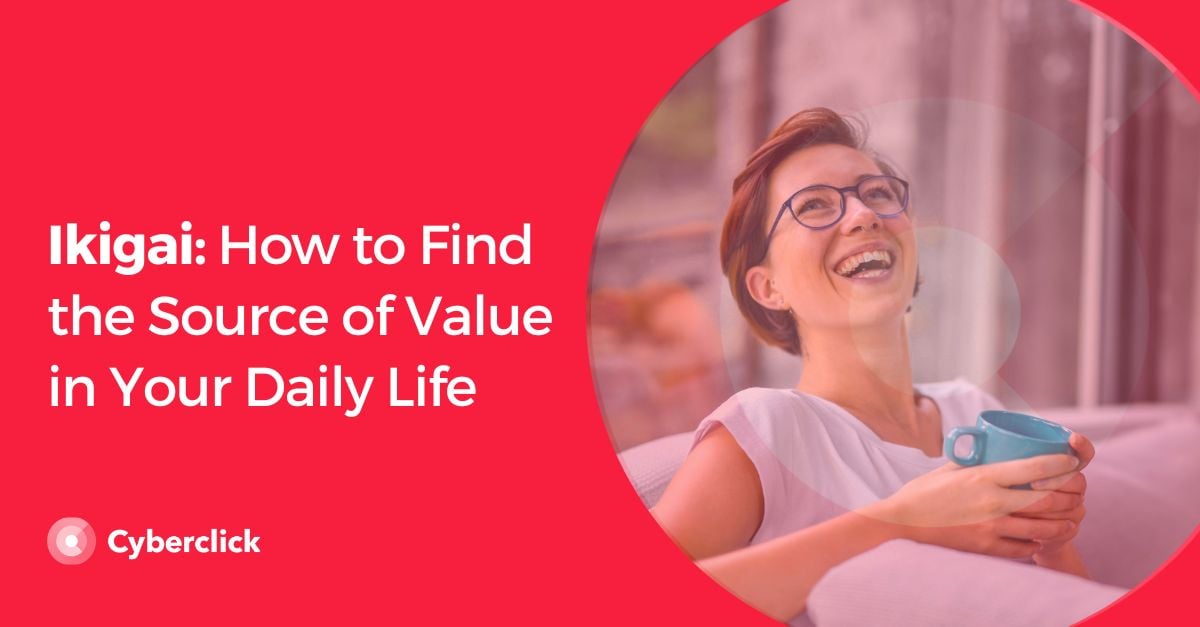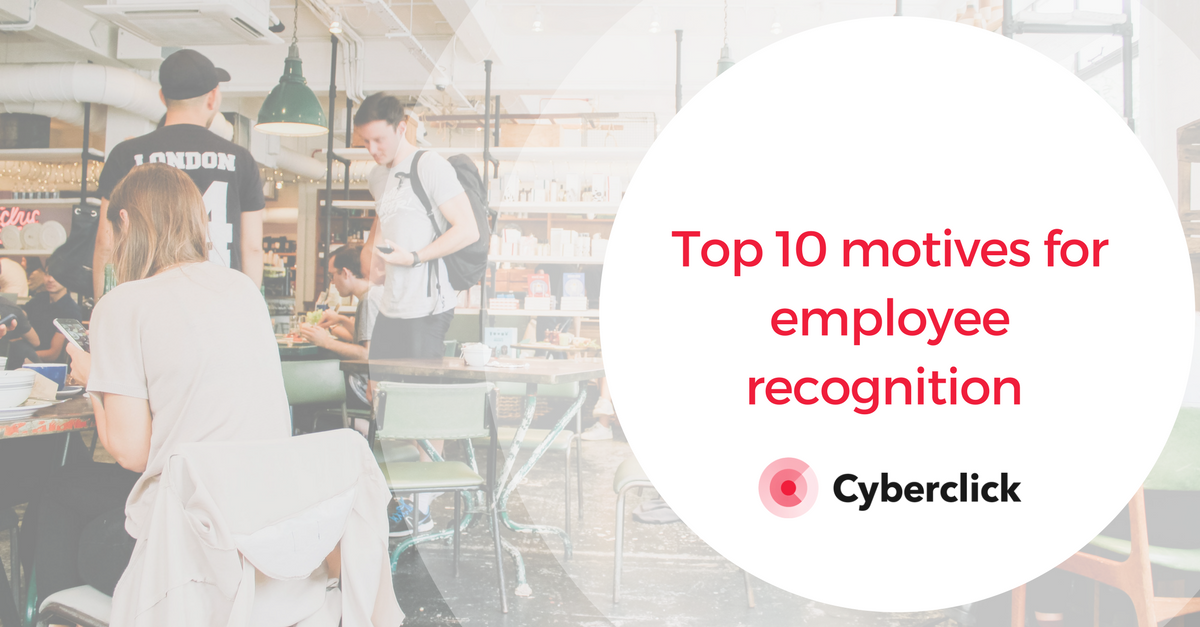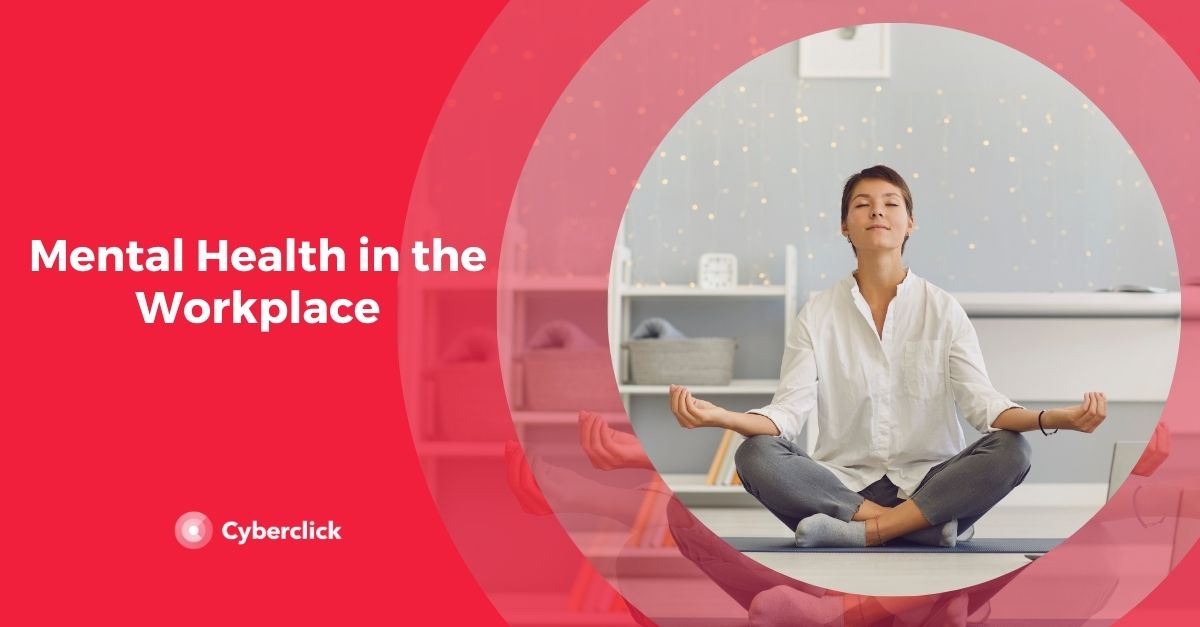According to Japanese culture, we all have an Ikigai (生き甲斐), pronounced ee-kee-guy. However, it may surprise you to learn that an Ikigai is not about aligning the four vocational elements of what you love, what the world needs, what you are good at, and what you can get paid for, which is what we have mistakenly been made to believe. That's the Venn Diagram of Purpose! So, what is Ikigai?
Read on to learn more about what this concept is and about how it can contribute to your overall well-being. Additionally, learn how we at Cyberclick digital marketing agency enable employees to find fulfillment in their professional lives.
Ikigai Meaning
IkigaiTribe clarifies that the meaning of Ikigai can be found by dividing up and analyzing the words "iki" and "gai." "Iki" comes from the word "ikiru" which means "to live", while "gai" is a suffix that signifies worth or value. Therefore, practicing Ikigai means finding value in day-to-day living.
Psychologists say that finding the source of value in your daily life can (unsurprisingly) improve your overall happiness. They claim that if people are able to find their Ikigai and have a sense of purpose and meaning, everything will be easier and more joyful. When we spend our time working towards goals that we are motivated to achieve and that we feel are important, it brings us a sense of fulfillment and engages us.
Ikigai vs. The Venn Diagram of Purpose
Contrary to popular belief, Ikigai is not the convergence of the 4 vocational elements. These include, what you love, what the world needs, what you are good at, and what you can get paid for. That is actually the Venn Diagram of Purpose. Over time, this Venn diagram has been mistaken by people all over the world as Ikigai, when in reality, it is a different concept. Nevertheless, it can be a useful tool in helping people consider how to spend their time and energy and even to find their purpose.
Where Are People Finding Their Ikigai?
There are many people who feel that they can not find their gift in life. Some people drag themselves out of bed, go to work, and come back home without getting much satisfaction from the way they spend their days. The feelings of drive and passion have become distant memories. When this happens, people can find it hard to reignite the spark and the feeling of engagement they once had.
Cyberclick's founder and CEO, David Tomas, explains where his passion for motivating his team to find life fulfillment came from in an interview where he said, "Years ago, one of my closest friends went through a long period of time where every Sunday evening, like clockwork, he would feel a terrible dread for the upcoming work week. He was spending so much being unhappy at work and on top of that, he wasted Sunday evenings dreading the week to come. After witnessing this pattern, I started to ponder what made him feel this way and how companies could avoid the Sunday scaries."
One of the main findings of motivational research in the workplace is that extrinsic motivation is limited. In other words, it is difficult to motivate other people to do things they are not themselves motivated to do.
Because of this, Ikigai is found intrinsically. If you look back, you’ll likely remember that as a child you had a natural inclination towards something or somethings. However, when adulthood came, your natural orientation was influenced by socio-economic factors like what others were doing, what your parents believe you should be doing, what type of income you believed you needed for certain standards of living, etc. These factors often take people away from their Ikigai. So, how can you rediscover it?
The 5 Pillars of Ikigai
According to IkigaiTribe, Ikigai can contribute to your health because it is closely related to creativity and is indispensable to well-being.
Ken Mogi, author of The Little Book of Ikigai, states that five pillars provide the essential foundation to allow your Ikigai to flourish.
These pillars are:
-
Start small
-
Release yourself
-
Harmony and sustainability
-
The joy of little things
-
Being in the here and now
In recent years, the benefits of mindfulness have often been promoted as ways to improve various aspects of our lives, from work to personal relationships to our mental and physical well-being. Ikigai also emphasizes appreciating the positives things in our lives, both tangible and intangible, regardless of how small they may seem.
Cyberclick Practices and Life Purpose
The pursuit of purpose has been an important goal for human beings for centuries. We seek practices that bring us fulfillment, which is just as necessary at work as it is in our personal lives.
We spend much of our lives at work and it can be hard to feel fulfilled if every morning we have to make a superhuman effort to get out of bed and make our way to a place where we do not feel valued or do not feel that what we do has real value.
Though this may sound naïve, a person's well-being should always be a priority in any organization. The truth is that if you take care of your employees, you will see better results across the board. From a financial viewpoint, investing in your team's intrinsic motivation or Ikigai will increase your ROI.
In 2015, David Tomás published his first book, called “The Happiest Company in the World”, where he reflects on the organizational culture that we have developed over the years at Cyberclick and the keys which have allowed us to win the award for Best Workplaces in Spain two years consecutively.
These keys, which are relatively easy to put into practice, are the following:
- Do what you do best
- Know how to say no
- Take care of your energy
- Practice continuous personal development
- Make time for things that are fulfilling
- Align your personal values with those of your company
- Simplify things
- Love the 'why' of your company
- Trust others
Life Fulfillment and Great Place to Work
While looking into the idea of fulfillment in the workplace, you may come across the organization Great Place to Work®. After millions of surveys and years of extensive research, this organization has come to the conclusion that there are three important factors that need to exist in a good workplace.
- Trust between coworkers and leaders.
- Pride in the role you perform.
- Camaraderie in the workplace.
Start with trust. It’s the glue that holds a company together, allowing you to improve and grow. Trust depends on the relationship between the employee and the company. The results of having a foundation of trust in your workplace are innumerable. Employees are more comfortable in their environment, they rely on one another for support, they feel valued, and they are much more confident in voicing their opinions and ideas.
Pride and camaraderie are more difficult to define and foster. These two values are different in that they vary based on each individual person's character and needs. They are reliant on the relationship between the employee and their job (pride) and the relationship between the employee and their coworkers (camaraderie). What each person needs to be proud of the work they do is personal and unique and it’s crucial to ensure that everyone is in a role that satisfies their goals.
The quality of relationships between coworkers depends on the personalities and different preferences each person has as well as the ability of the team to match them. Pride and camaraderie relate back to the concept of Ikigai in that it's necessary to appreciate others and the goals that they pursue while also valuing yourself and yours. This will create a more harmonious work environment composed of successful individuals.
CEO y cofundador de Cyberclick. Cuenta con más de 25 años de experiencia en el mundo online. Es ingeniero y cursó un programa de Entrepreneurship en MIT, Massachusetts Institute of Technology. En 2012 fue nombrado uno de los 20 emprendedores más influyentes en España, menores de 40 años, según la Global Entrepreneurship Week 2012 e IESE. Autor de "La empresa más feliz del mundo" y "Diario de un Millennial".
CEO and co-founder of Cyberclick. David Tomas has more than 25 years of experience in the online world. He is an engineer and completed an Entrepreneurship program at MIT, Massachusetts Institute of Technology. In 2012 he was named one of the 20 most influential entrepreneurs in Spain, under the age of 40, according to Global Entrepreneurship Week 2012 and IESE. Author of "The Happiest Company in the World" and "Diary of a Millennial".







Leave your comment and join the conversation